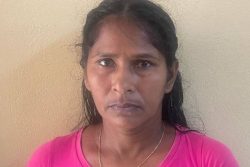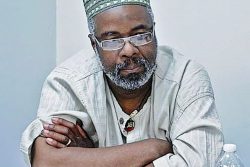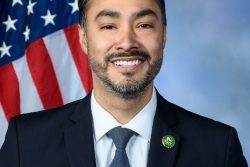Pollsters got the outcome of this year’s US elections “badly wrong,” according to Baruch College Professor David Birdsell, who says that the massive error can result in a heavy backlash for the polling business in future elections.
Birdsell, who is the Dean of the Marxe School of Public and International Affairs, told a group of foreign journalists on Wednesday that the pollsters were seemingly unable to predict that president-elect Donald Trump would have been able to solidify all his support bases.
Polls conducted during the months leading up to the elections tipped former Secretary of State Hillary Clinton to become president over Trump, a businessman with no political experience. The Clinton win was predicted to be very slim and there was worry that she would not do well in key battleground states. According to numbers released following Tuesday’s elections, Trump managed to secure more than 50 Electoral College votes over Clinton.
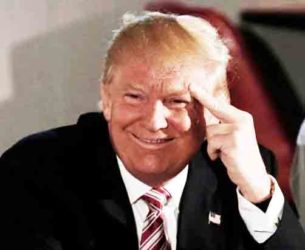
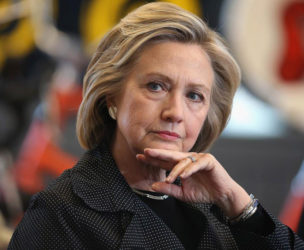
Among the polls which showed Clinton heading for a win were those conducted by CBS News, Fox News, Reuters/Ipsos and USA Today/Suffolk.
During a post elections briefing with the foreign media one day after millions of Americans voted for President Barack Obama’s replacement, Birdsell expressed some surprise at the results.
He said the polls read the entire elections wrong as Trump was able to solidify all of the sources of support that “we thought all along that he was going to get.” He said among these support bases was men, particularly white men. He said what was surprising is that he was actually able to make inroads with women, which was not expected.
It has been assumed that Trump would lose his female supporters after a recording with him making degrading comments about women surfaced. This was in the weeks leading up to the elections.
According to Birdsell, the real story was not just how well Trump did in getting his voters to the polls, but how poor a job Clinton’s operations did. “If we look at every single category that Barack Obama carried in 2012, she underperformed…with African Americans that was expected. She underperformed among men – that was expected. But she also underperformed among Latinos…, Asians…, low-income people…, high-income people and most surprising… college-educated women and women overall,” he stressed.
He said this underperformance was a “massive” indictment of what may be one of several things that experts would spend a long time trying to understand. He said what happened in this election would be a topic of discussion for a long time to come.
The professor stressed that the outcome of the election has been a massive setback to the business of polling, social science research and what is believed to be known about electors. Talking about the depth of the failure of pollsters, Birdsell said one has to question several things, including the questions that they put to electors and who they targeted. He said what occurred was not happening in the US alone and he singled out the 2015 Israeli parliamentary elections, where there was an unpredicted result, and Brexit.
Birdsell was among several Baruch College experts speaking with journalists.
Days before the elections, Ohio State University professors had warned that the polls were generally unpredictable.
“But if you take them all together then, especially if you are able to weigh [them], you can get a pretty good estimate of where things stand. Anyone who tells you they know for certain how this elections is going to be resolved… with 100 per cent certainty, I would be suspicious of those claims,” Professor of Constitutional Law Daniel Tokaji said.
Professor Emeritus of Political Science Paul Beck also said that the results of polls are unreliable and should not be used as an instrument to predict the winner. “The important thing to realize is that polls are a snapshot…One of the problems that all the pollsters have is getting people to respond to the polls,” he said, before adding that the response rate is very low and this would not in the end make an accurate prediction. He said that some people lie too.
He added that there were a number of reasons to be suspicious about the polls. “When you get down to a race that is very close… the poll is not really gonna tell you who is going to win that race even if the poll is done on election day itself. The best guideline… is to do a kinda minimum averaging,” he said, while noting that polling is a big industry and almost anyone can conduct a poll.
Meanwhile, President of Baruch College Dr Mitchell Wallerstein noted that the results of the elections had left many “deeply disturbed.” He said the elections have come and gone and the new president-elect now has the duty and obligation to put aside all the rhetoric and begin the hard work of putting together an administration and determining the proprieties for his first 100 days in office.”
Editor’s note: Stabroek News was one of two Caribbean media houses chosen to participate in the US Election Tour organized by the US Department of State’s Foreign Press Center.


